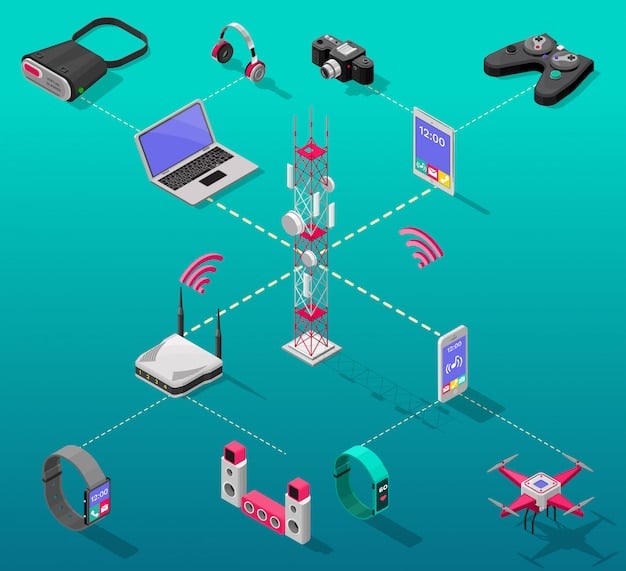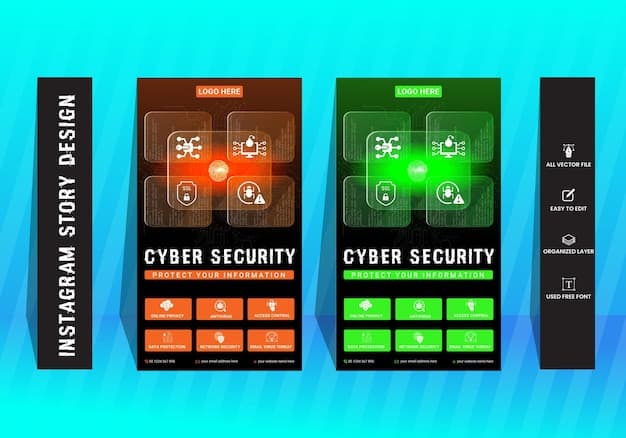PC Gamers Beware: Game Launcher Vulnerabilities Expose Your Data

PC Gamers are urged to update their game launchers immediately due to newly discovered vulnerabilities that could compromise their accounts and personal data.
PC Gamers Alert: New Vulnerabilities Found in Popular Game Launchers – Protect Yourself Now. The digital world of PC gaming offers endless entertainment, but beneath the surface lurks potential security threats that can compromise your personal data.
Understanding the Threat Landscape for PC Gamers
PC gaming, while incredibly popular, is a constant target for cybercriminals. Understanding the types of threats faced by PC gamers is the first step in protecting yourself.
Common Vulnerabilities in Game Launchers
Game launchers are essentially portals to your favorite games and gaming communities, but they can also be entry points for malicious actors. Common vulnerabilities include:
- Cross-Site Scripting (XSS): Attackers inject malicious scripts into websites viewed within the launcher.
- Remote Code Execution (RCE): Hackers gain the ability to execute arbitrary code on your system.
- Privilege Escalation: Attackers exploit flaws to gain higher-level access to your system.
- Unpatched Security Flaws: Older versions of launchers may contain known vulnerabilities that haven’t been addressed.
The Role of Game Launchers in Security Breaches
Game launchers often handle sensitive information, such as login credentials, payment details, and personal data. This makes them attractive targets for cybercriminals seeking to steal or monetize your information. A successful breach can lead to identity theft, financial fraud, and compromised gaming accounts.

Therefore, staying informed and proactive is crucial. This is why it’s important to know how to identify potential risks so you can prevent data breaches. After all, once the data breach happens, damages are harder to control.
In summary, understanding the vulnerabilities is key to protecting yourself. By being aware of the common threats and the role game launchers play in security breaches, you’re better equipped to take proactive steps to safeguard your data and gaming experience.
Popular Game Launchers Under the Microscope
Several popular game launchers are used by millions of gamers worldwide. While these platforms offer convenience and access to vast game libraries, they’ve also faced security concerns.
Steam: A Constant Target for Hackers
Steam, the largest PC game launcher, has a massive user base, making it a prime target for hackers. Despite Valve’s ongoing efforts to improve security, vulnerabilities are occasionally discovered. Recent incidents include phishing scams targeting Steam users and exploits leveraging outdated browser components within the Steam client.
Epic Games Launcher: Security Concerns and Controversies
The Epic Games Launcher, while growing in popularity, has faced scrutiny regarding its data collection practices and potential vulnerabilities. Some users have raised concerns about the launcher’s access to system information and the potential for data tracking. Additionally, researchers have identified security flaws that could be exploited by malicious actors.
Other Launchers (GOG Galaxy, Origin, etc.) and Their Security Postures
Other game launchers, such as GOG Galaxy and Origin, also present potential security risks. GOG Galaxy, while known for its DRM-free approach, still requires users to create accounts and share personal information. Origin, EA’s game distribution platform, has faced criticism for past security breaches and account compromises.
Each launcher does its share to increase user safety, though. For example, most launchers come with two-factor authentification to prevent unauthorized access to accounts. Steam and Epic Games often roll out security patches to remediate existing vulnerabilities and make the system harder to break. At the end of the day, it’s a matter of awareness from the user side.

In conclusion, each game launcher comes with its security trade-offs. It’s important to be aware of those elements and pick the launchers you trust the most. Always keep your software up to date so that you benefit from the latest release of security improvements.
Identifying Potential Vulnerabilities: What to Look For
Recognizing potential vulnerabilities is essential for protecting your PC gaming setup. By being vigilant and knowing what to look for, you can mitigate risks and minimize the chances of falling victim to cyberattacks.
Unusual Behavior and Performance Issues
Keep an eye out for unusual behavior in your game launchers or on your computer in general. This includes:
- Unexpected crashes or freezes.
- Unexplained network activity.
- Unusual CPU or memory usage.
- Pop-up ads or unfamiliar programs appearing on your system.
Phishing Attempts and Suspicious Emails
Phishing scams are a common tactic used by cybercriminals to steal login credentials and personal information. Be wary of emails or messages that:
- Request personal information, such as passwords or credit card details.
- Contain suspicious links or attachments.
- Create a sense of urgency or threaten negative consequences if you don’t act immediately.
Outdated Software and Lack of Security Updates
Outdated software is a major security risk. Ensure that your game launchers, operating system, and antivirus software are always up to date. Security updates often include patches for newly discovered vulnerabilities, so installing them promptly is crucial.
In a nutshell, by being aware of unusual behavior, phishing attempts, and the importance of software updates, you can reduce your risk of falling victim to cyberattacks.
Best Practices for Securing Your Game Launchers
Protecting your game launchers and gaming accounts requires a proactive approach. Implementing these best practices can significantly enhance your security posture and minimize the risk of compromise.
Strong Passwords and Two-Factor Authentication
Use strong, unique passwords for each of your game launcher accounts. A strong password should be at least 12 characters long and include a mix of uppercase and lowercase letters, numbers, and symbols. Additionally, enable two-factor authentication (2FA) whenever possible. 2FA adds an extra layer of security by requiring a second verification code from your phone or email address when you log in.
Regularly Updating Your Software
Make it a habit to regularly check for and install software updates for your game launchers, operating system, and antivirus software. These updates often include critical security patches that address newly discovered vulnerabilities.
Being Cautious with Third-Party Plugins and Mods
Exercise caution when installing third-party plugins and mods for your games. Only download them from trusted sources and carefully review the permissions they request. Malicious plugins and mods can contain malware or other harmful code that can compromise your system.
To recap, by implementing strong passwords, enabling two-factor authentication, keeping your software up to date, and being cautious with third-party plugins, you’ll secure and harden your account and machine against data breaches and intrusions.
Responding to a Security Breach: Steps to Take Immediately
Even with the best security measures in place, there’s always a risk of experiencing a security breach. Knowing how to respond quickly and effectively can help minimize the damage.
Changing Passwords and Securing Accounts
If you suspect that your game launcher account has been compromised, immediately change your password. Choose a strong, unique password that you haven’t used before. Also, enable two-factor authentication if it’s not already enabled.
Scanning Your System for Malware
Run a full system scan with your antivirus software to detect and remove any malware that may be present. Be sure to update your antivirus software to the latest version before running the scan.
Reporting the Incident to the Game Launcher Provider
Contact the game launcher provider to report the security breach. Provide them with as much information as possible, including the date and time of the incident, any suspicious activity you’ve observed, and any steps you’ve taken to secure your account.
In short, by changing passwords, scanning for malware, and reporting the incident to the game launcher provider, you can take the necessary steps to mitigate the damage and prevent further harm.
The Future of Game Launcher Security
As the gaming industry continues to evolve, so too will the landscape of game launcher security. Emerging technologies and evolving threat vectors will require new approaches to protect gamers from cyberattacks.
Emerging Technologies and Security Measures
Biometric authentication, such as fingerprint or facial recognition, could replace traditional passwords, making it more difficult for attackers to gain unauthorized access to accounts. Blockchain technology could be used to create secure and transparent systems for verifying game ownership and preventing piracy.
The Role of AI in Detecting and Preventing Threats
Artificial intelligence (AI) can play a crucial role in detecting and preventing threats. AI-powered security systems can analyze network traffic, user behavior, and other data to identify suspicious activity and automatically respond to potential attacks. Machine learning algorithms can be trained to recognize patterns of malicious behavior and proactively block threats.
Collaboration Between Game Developers and Security Experts
Collaboration between game developers and security experts is essential for improving the security of game launchers. By working together, they can identify potential vulnerabilities, develop effective security measures, and share information about emerging threats. This collaboration can lead to more secure and resilient gaming platforms.
In conclusion, as technology advances, the future of game launcher security holds promise, yet it requires continuous adaptation and collaboration to stay ahead of potential threats.
| Key Point | Brief Description |
|---|---|
| 🔑 Strong Passwords | Use unique, complex passwords for each launcher. |
| 🛡️ Two-Factor Authentication | Enable 2FA on all accounts whenever possible. |
| 🔄 Regular Updates | Keep launchers and systems updated for security patches. |
| ⚠️ Be Cautious | Exercise caution with plugins, mods, and suspicious emails. |
FAQ – Protecting Your Gaming Accounts
▼
Game launchers often handle sensitive user data, including login info and payment details, making them attractive targets for cybercriminals seeking to steal this information.
▼
A strong password should be at least 12 characters long and include a combination of uppercase and lowercase letters, numbers, and symbols to make it harder to crack.
▼
2FA adds an extra layer of security by requiring a second verification code from your phone/email upon login, preventing unauthorized access even if someone knows your password.
▼
You should update your game launchers, operating system, and antivirus software regularly, as updates frequently include security patches that fix newly discovered vulnerabilities.
▼
Immediately change your password, enable 2FA, scan your system for malware, and report the incident to the game launcher provider to secure your account and prevent further damage.
Conclusion
In conclusion, safeguarding your PC gaming experience from emerging vulnerabilities in game launchers requires vigilance, awareness, and proactive measures, ensuring that you stay one step ahead of potential threats and enjoy gaming without compromising your personal data.